Tools Required
| • | J 43655 Sprocket Holding Tool |
| • | SA9127E Gage Bar Set |
Removal Procedure
- Disconnect the negative battery cable.
- Disconnect the intake air temperature (IAT) sensor connector.
- Loosen the clamp at the air cleaner assembly.
- Remove the push pin attachment from the outlet resonator/duct assembly to support bracket.
- Loosen the clamp at the throttle body assembly.
- Disconnect the positive crankcase ventilation (PCV) fresh air vent hose at the cam cover.
- Remove the outlet resonator/duct assembly.
- Disconnect the electrical connector at the ignition module.
- Remove the ignition module assembly with bolts.
- Disconnect the coolant de-gas hose clip on the fuel rail.
- Disconnect the ground strap at the rear of the cam cover assembly.
- Relieve the fuel system pressure. Refer to Fuel Pressure Relief .
- Disconnect the gage bar set SA9127E after the pressure has been relieved.
- Disconnect the fuel rail bracket and bolt at the rear of the cam.
- While supporting the fuel rail assembly with an open-end wrench, loosen the transfer line fitting at fuel.
- Position the fuel line away from the cam cover assembly.
- Remove then cam cover assembly bolts.
- Remove the cam cover assembly.
- Remove the purge solenoid from the power steering plate.
- Remove the power steering block off plate if the intake camshaft is being removed.
- Locate the number 1 piston to approximately 60 degrees before top dead center, diamond shaped hole on the intake camshaft sprocket at the 12 o'clock position. Remove the spark plugs. This will ease rotation effort.
- Remove the upper timing chain guide.
- Remove the front camshaft caps.
- Install the J 43655 through the sprocket holes from the timing side of the sprocket towards the rear of the engine.
- With guide pin installed in the sprocket, align the guide pins into the slots on the support plate.
- Tighten the support bracket to cylinder head.
- Install the wing nuts and tighten.
- Hold each camshaft in place using a 24 mm open end wrench and carefully remove the camshaft sprocket timing retaining bolts and washers. Discard the torque-to-yield (TTY) bolts.
- Slide the camshaft sprockets away from the camshafts.
- To release the spring tension on the camshaft, after the camshaft is disengaged from the sprocket, rotate the camshaft using a 24 mm wrench to a neutral position.
- Uniformly loosen and remove the remaining camshaft cap bolts.
- Carefully pull the camshafts straight up to avoid damaging the cylinder head thrust surfaces.
Caution: Refer to Battery Disconnect Caution in the Preface section.
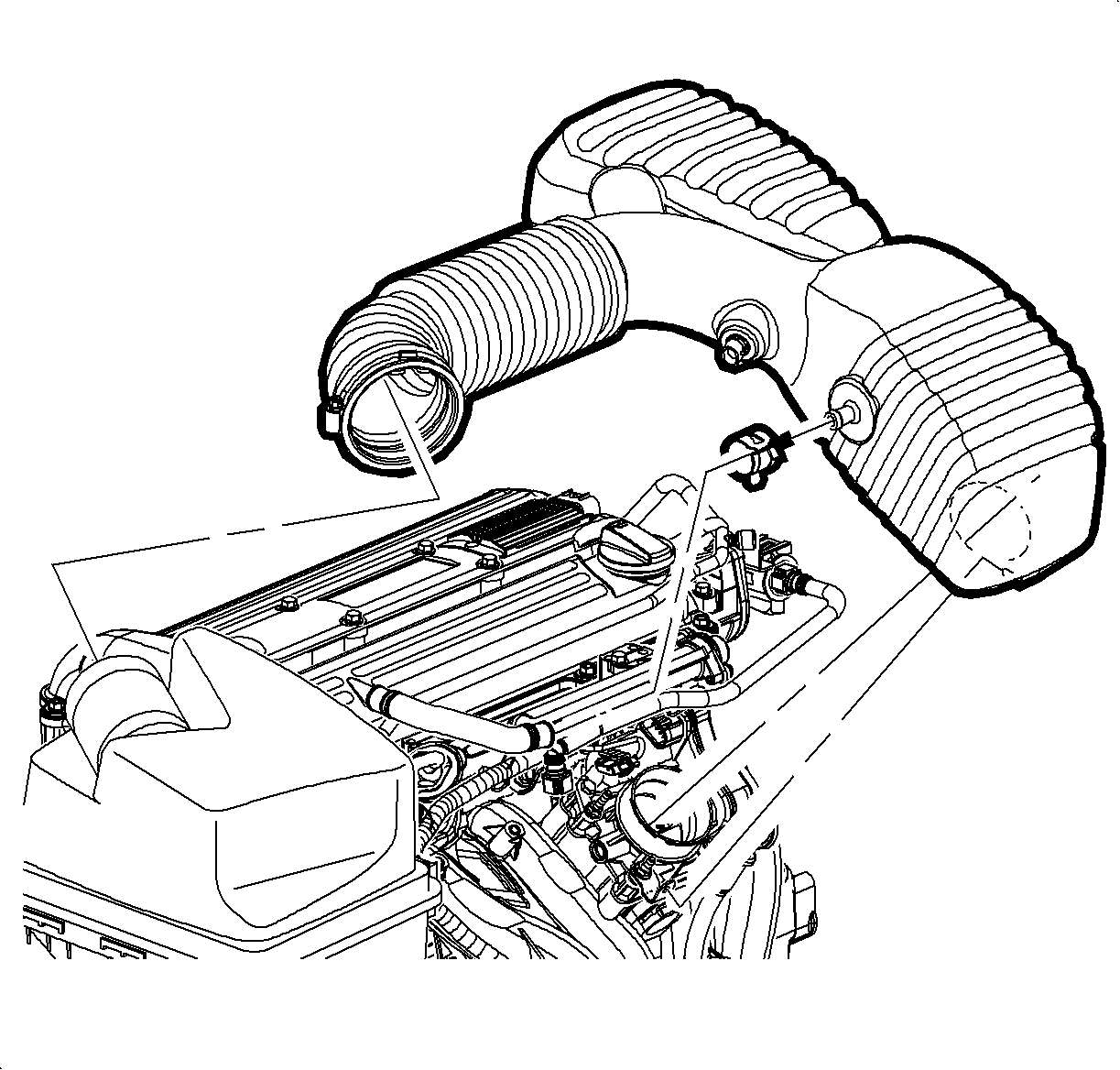
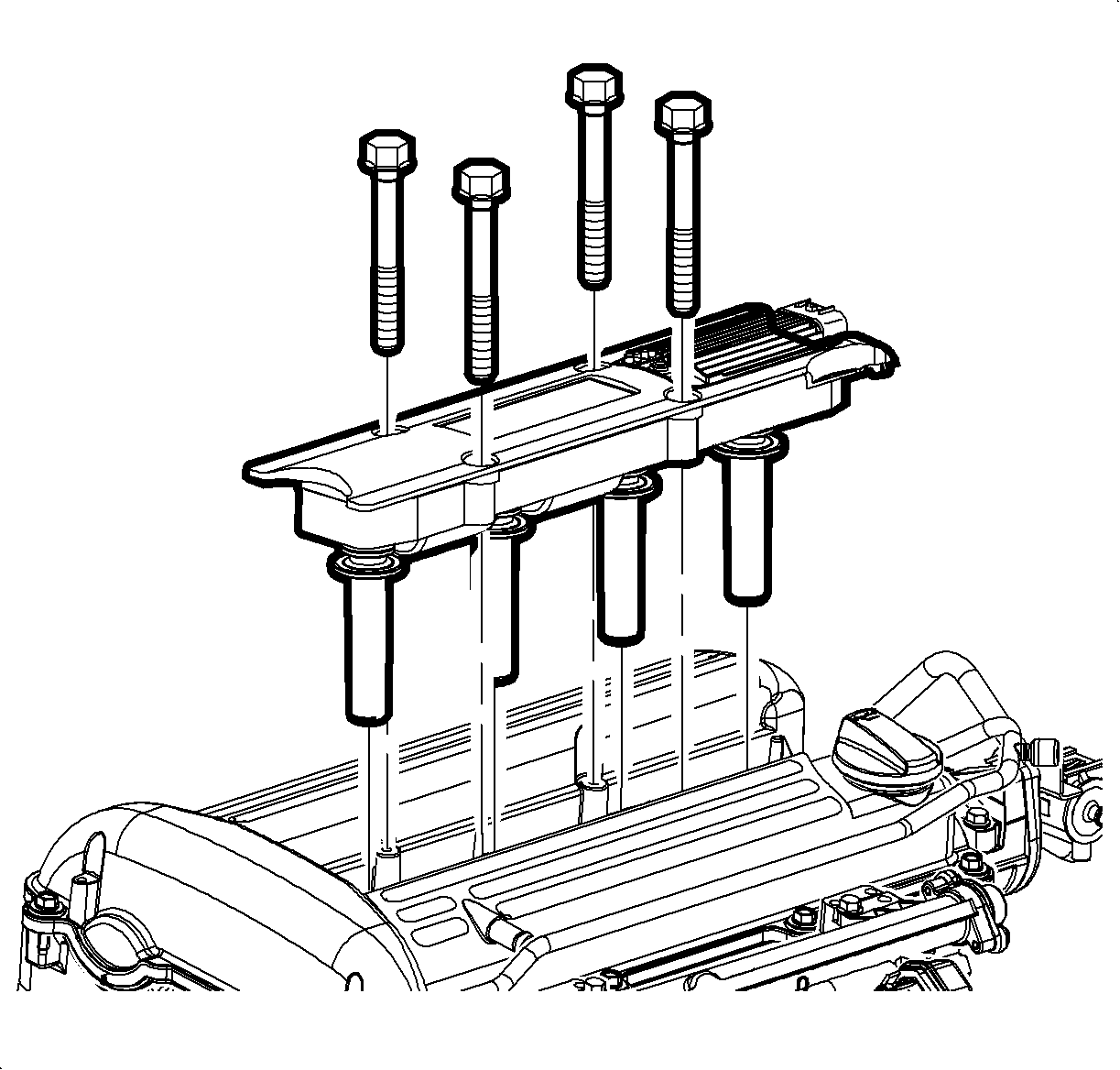
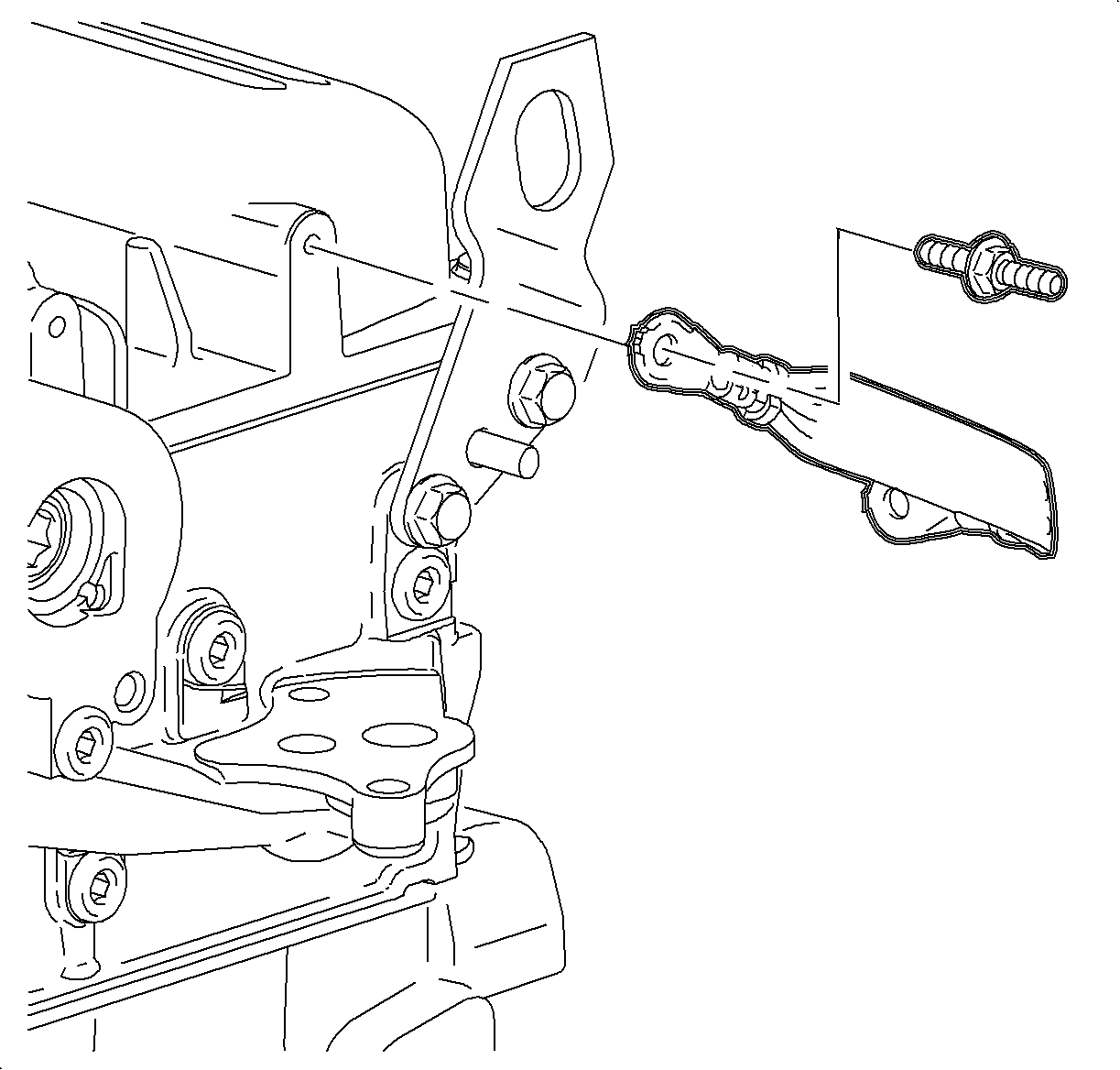
Caution: Whenever fuel line fittings are loosened or disconnected, wrap a shop cloth around the fitting to collect fuel. Place the cloth in an approved container.
Notice: An open-end wrench must be used to support the fuel line to rail connection during loosening/tightening to avoid damaging the fuel rail assembly.
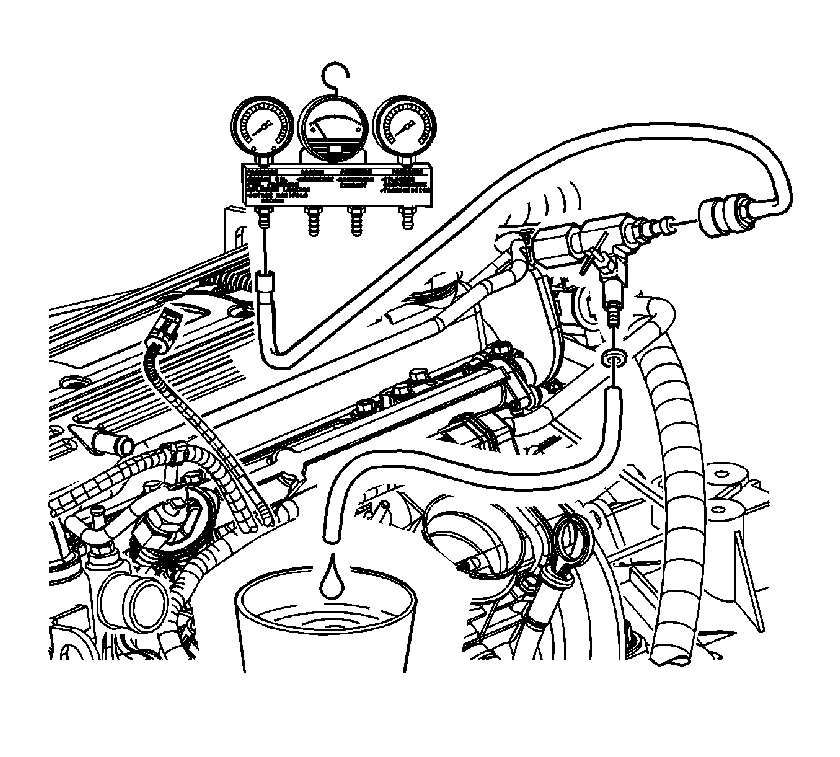
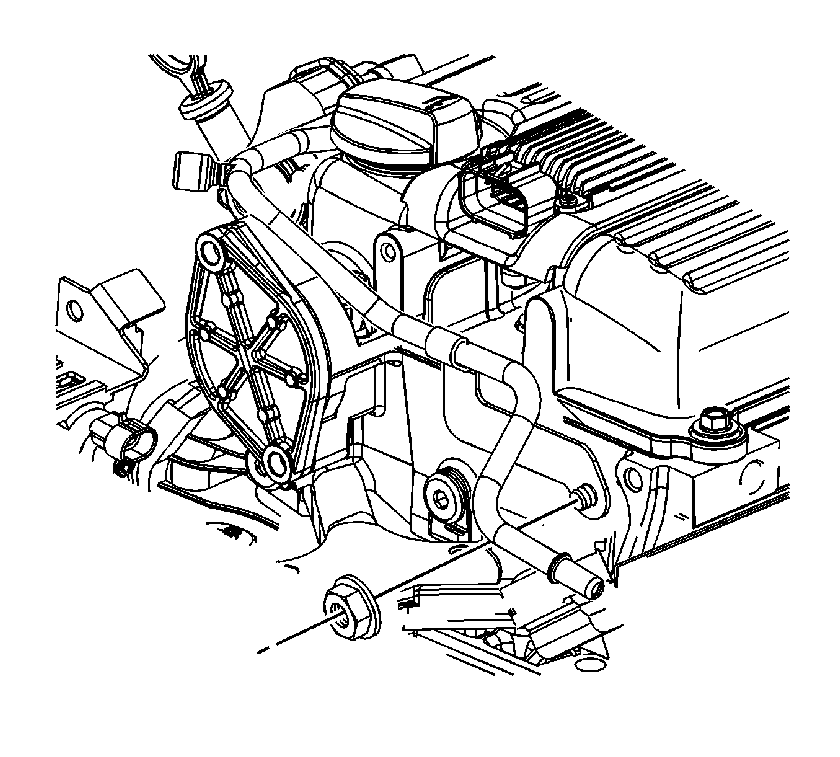
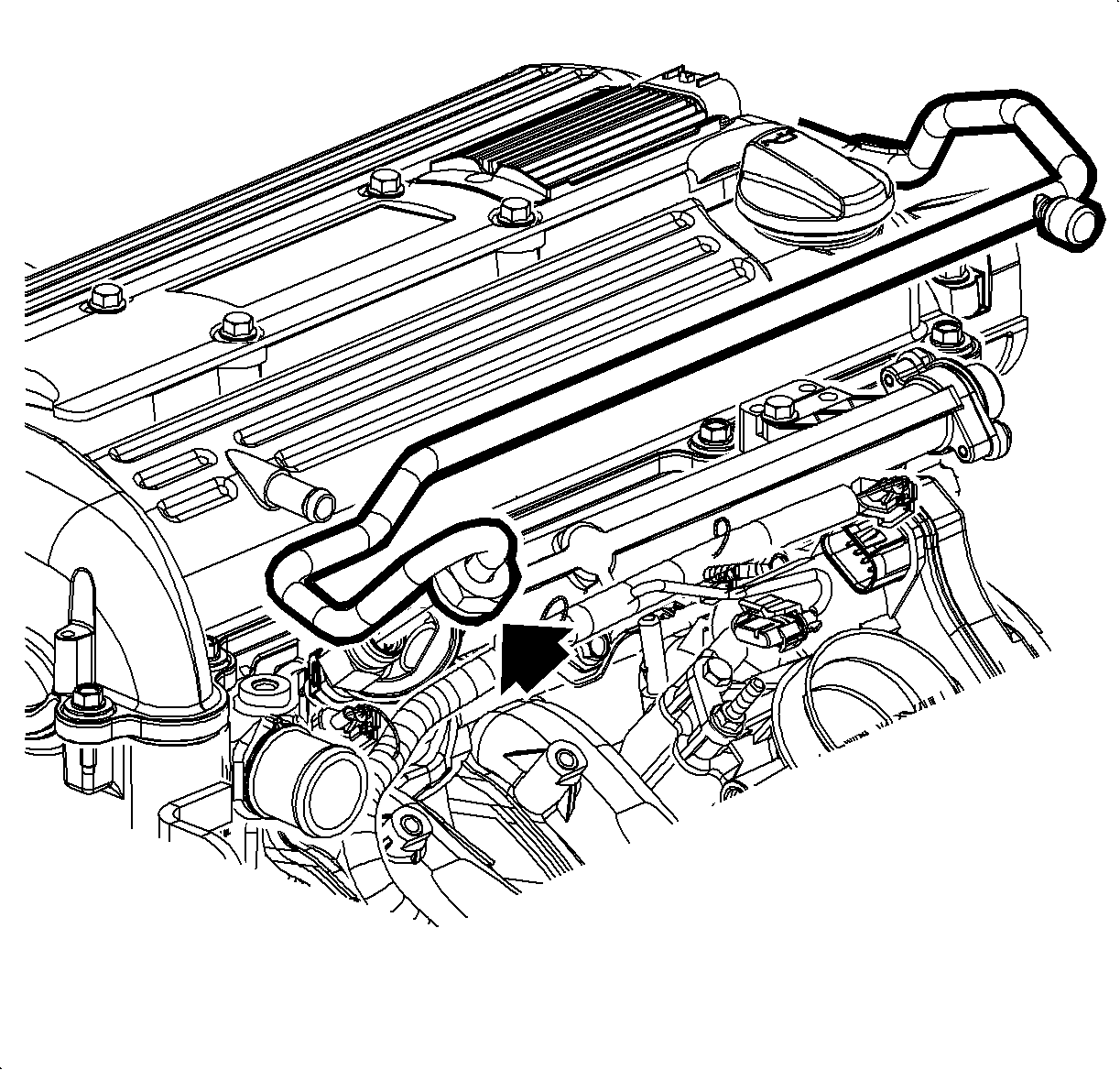
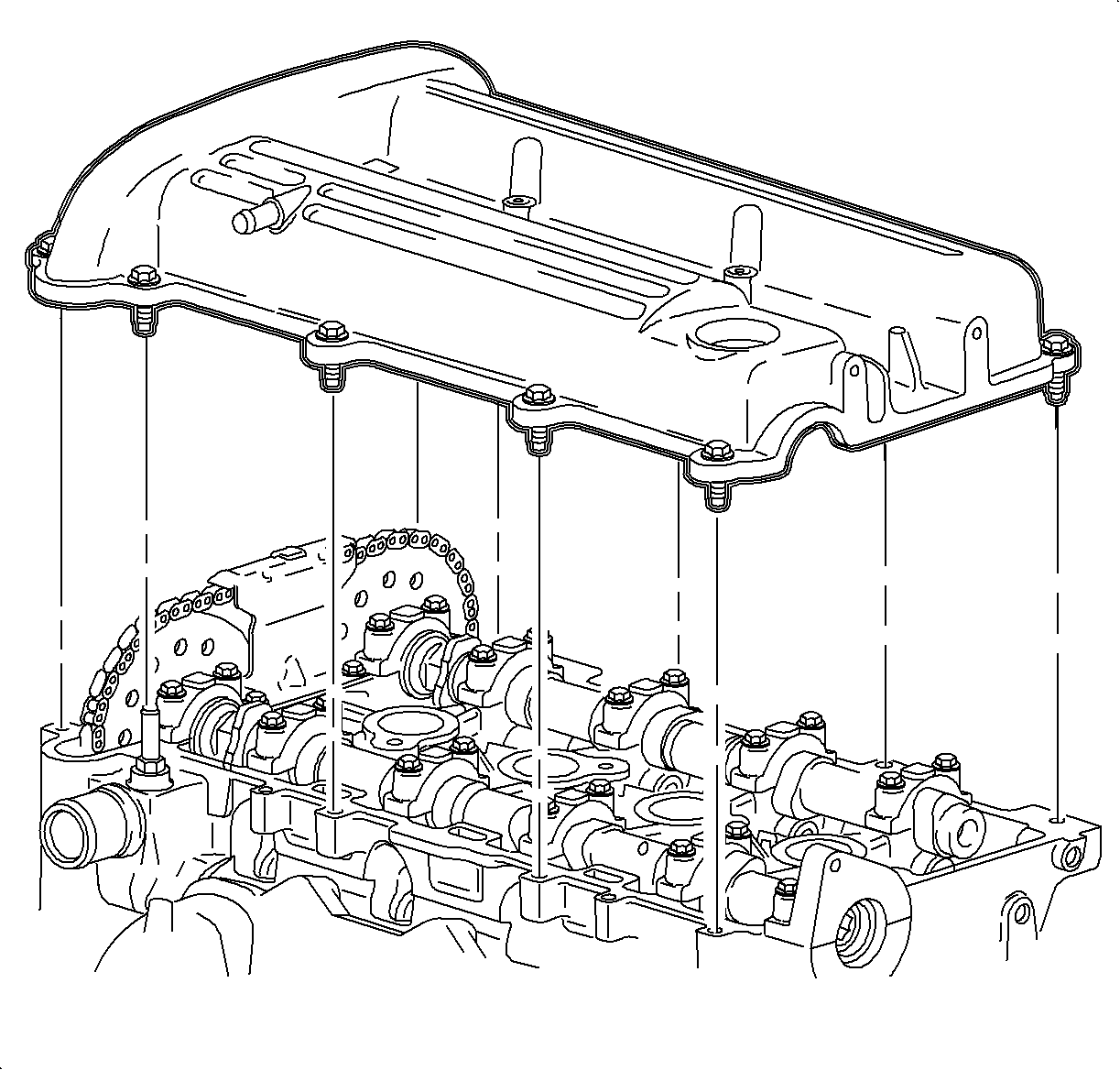
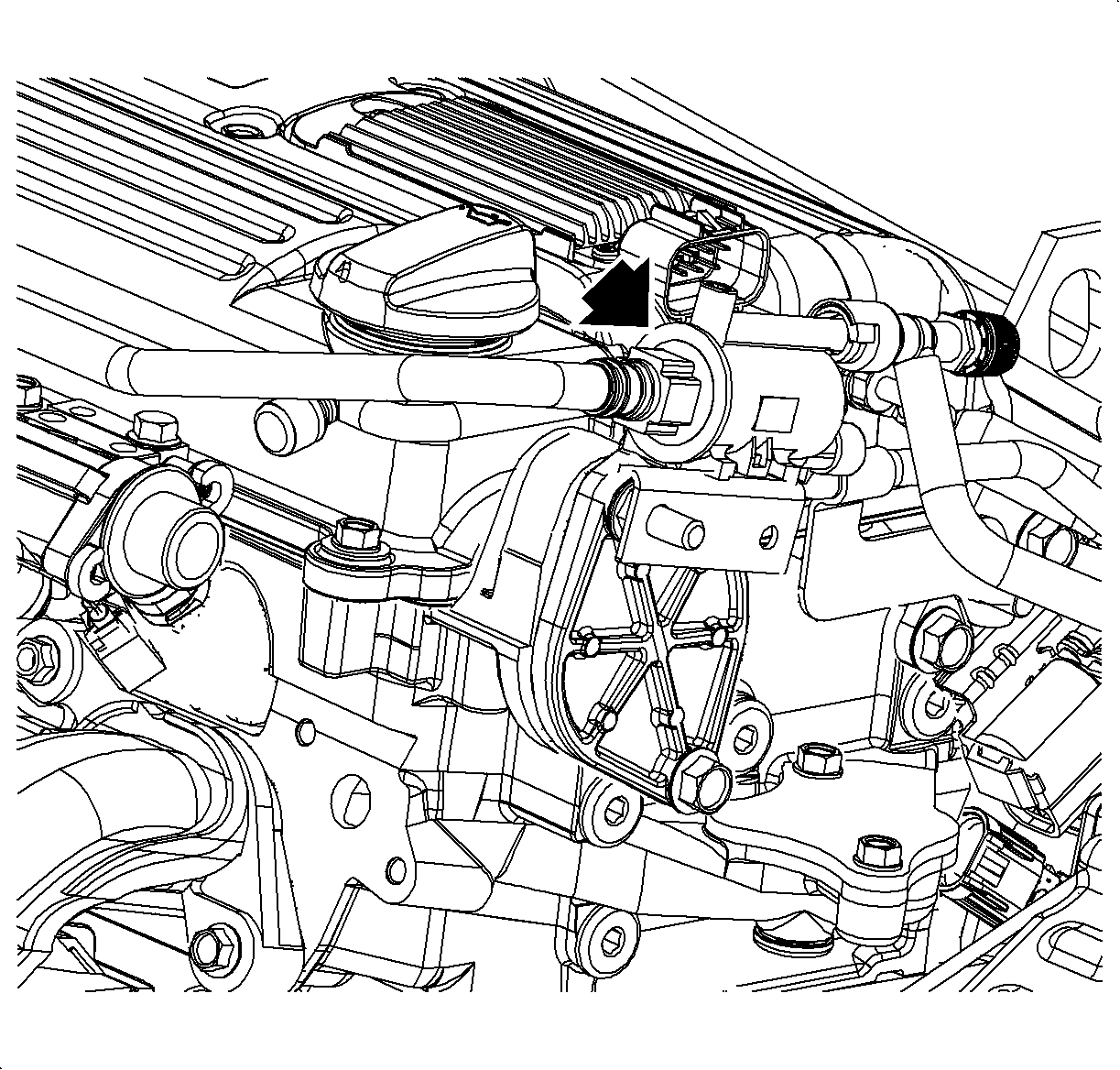
Notice: To avoid valve piston contact, No. 1 cylinder piston must be positioned at approximately 60 degrees before-top dead center (BTDC). Pistons are properly positioned when the diamond shaped hole on the intake camshaft sprocket is located at 12 o'clock.
Important: To rotate camshafts, use a 24 mm open end wrench on camshaft flats. Camshafts should be rotated in a clockwise direction only, facing camshaft sprockets from passenger side of the vehicle.
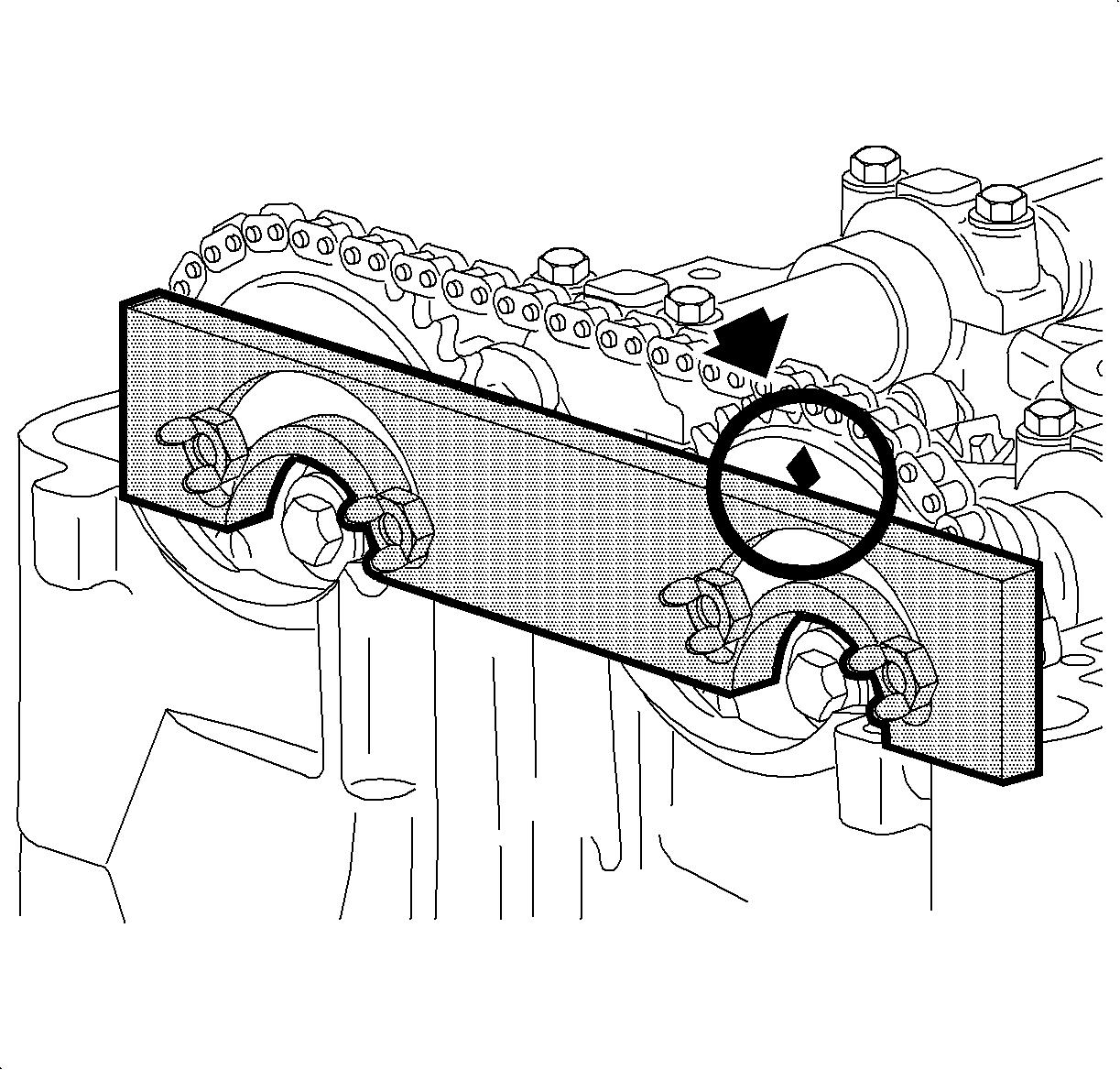
Important: When removing guide bolts, do not drop the bolt down into the front cover area
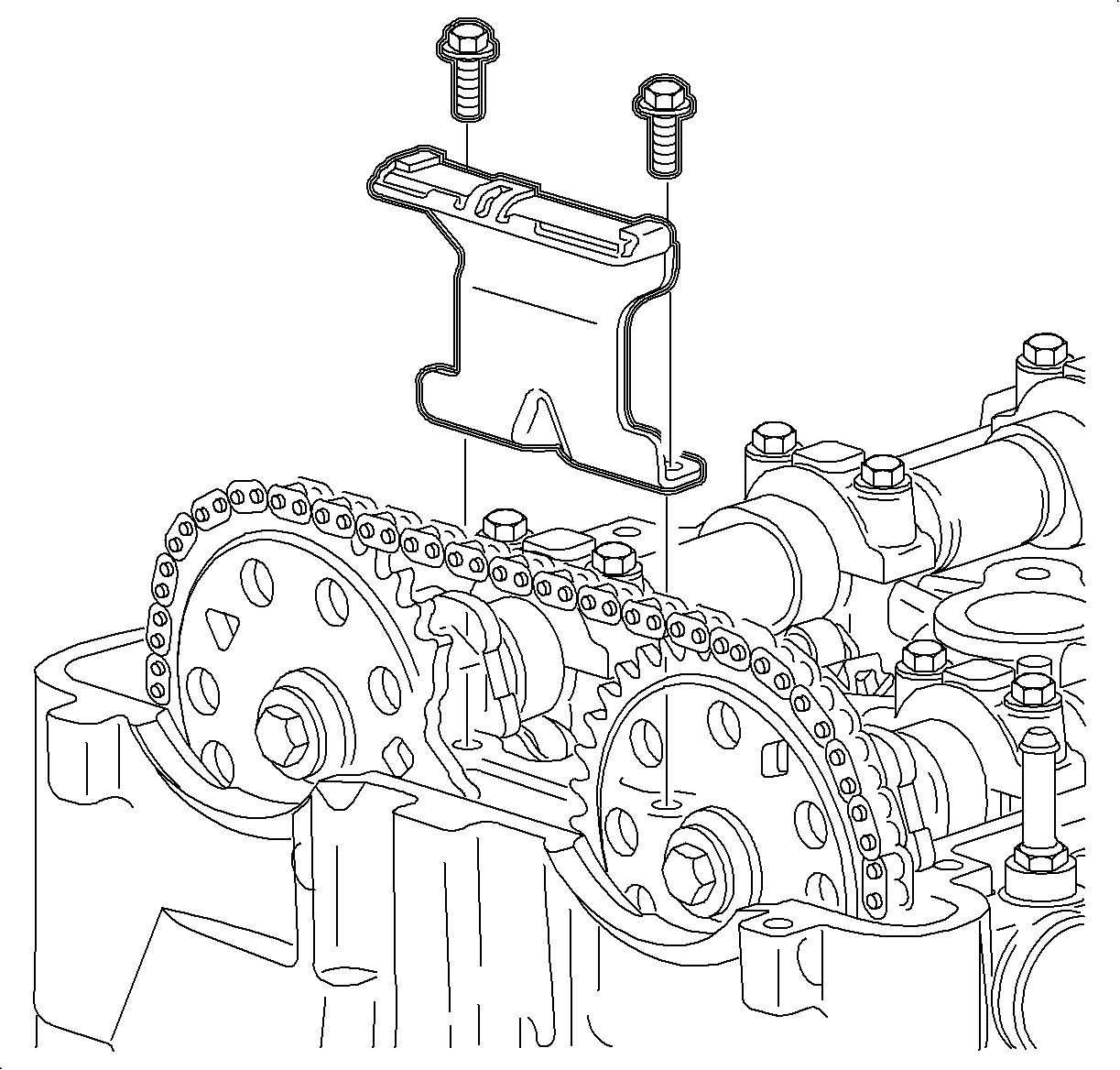
Important: Lubricate the sprocket pins with clean motor oil. This will allow the sprockets to easily slide on the sprocket pins.
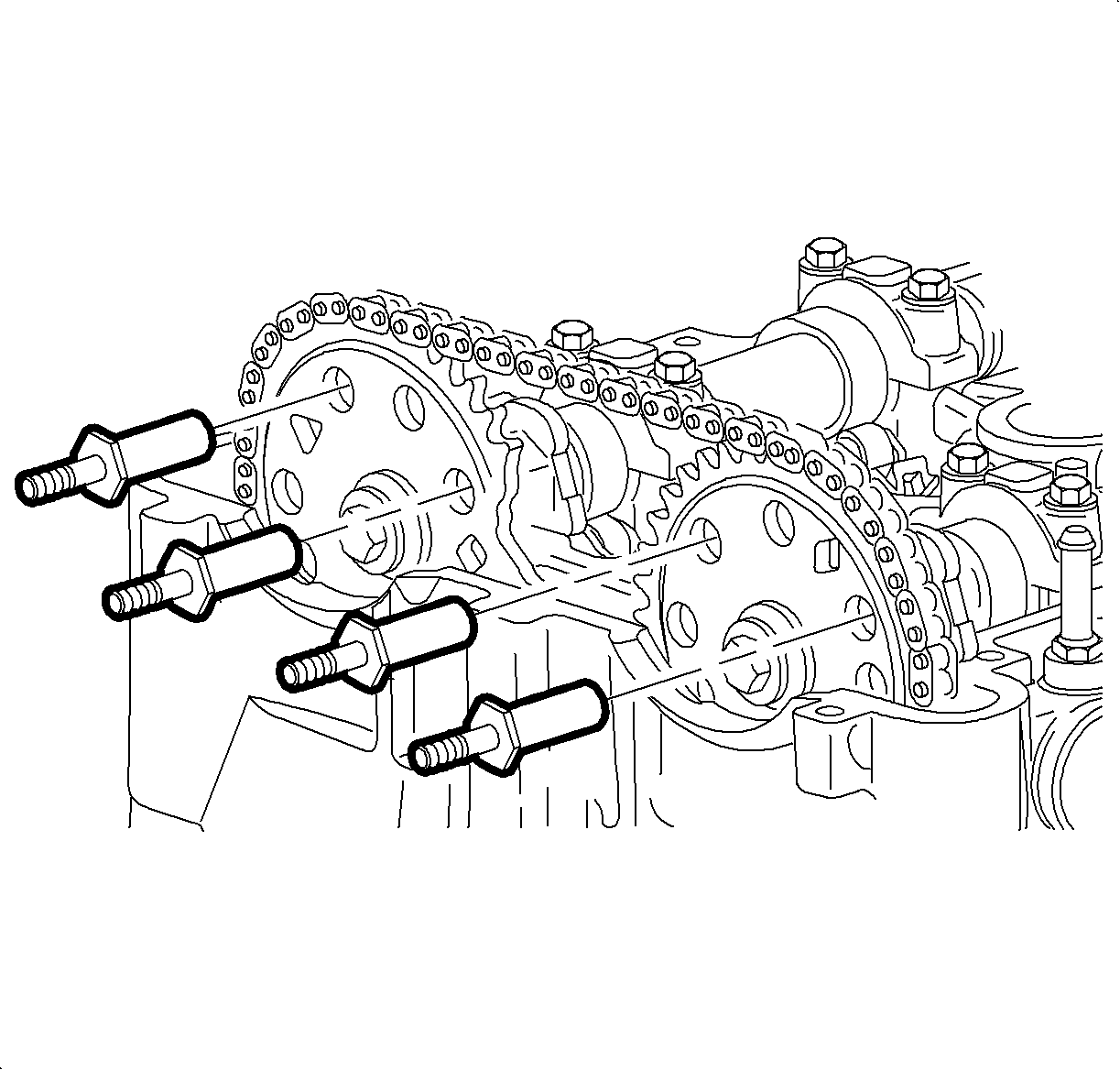
Notice: Refer to Fastener Notice in the Preface section.
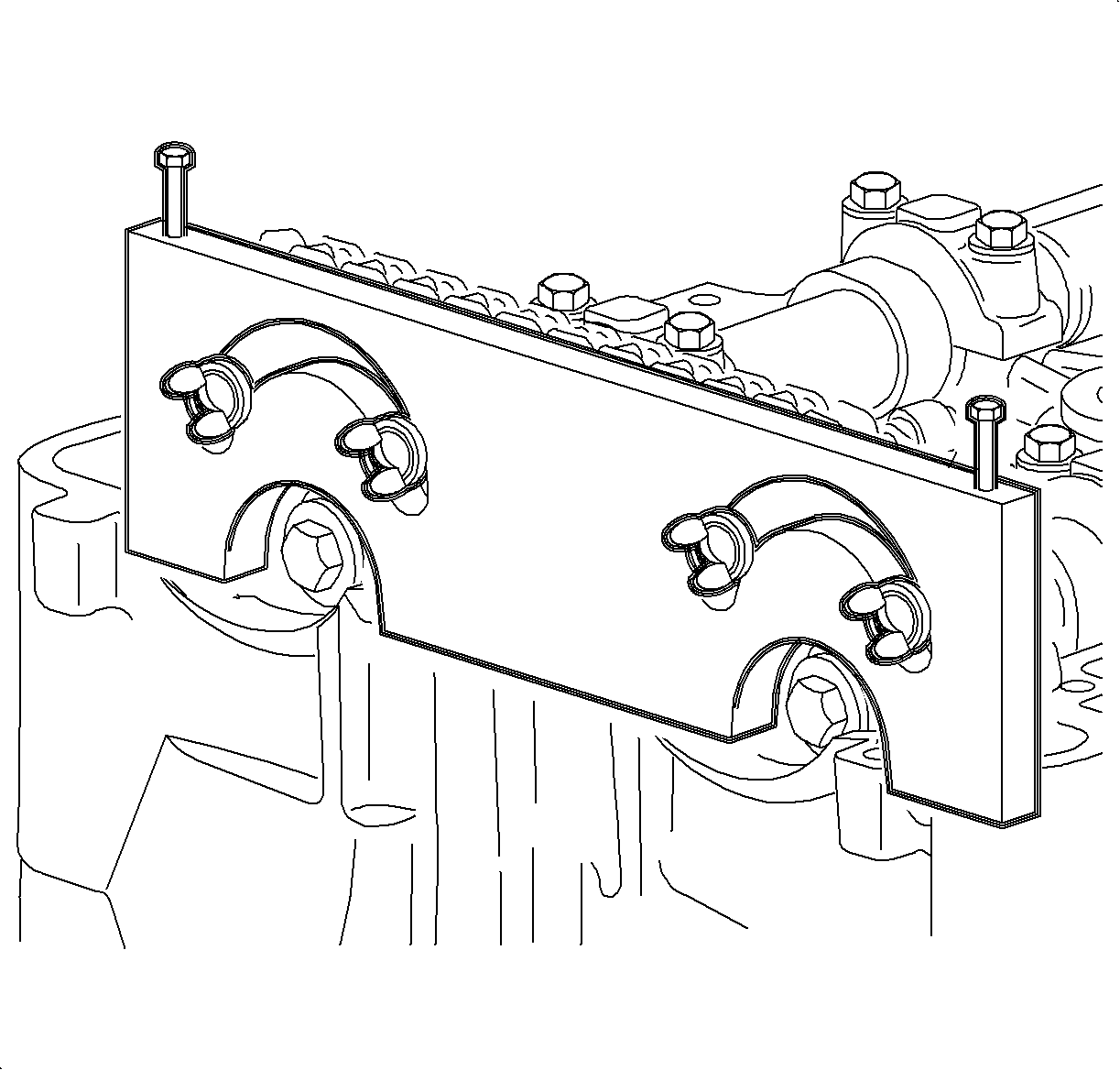
Tighten
Tighten the support plate to cylinder head to 10 N·m (89 lb in).
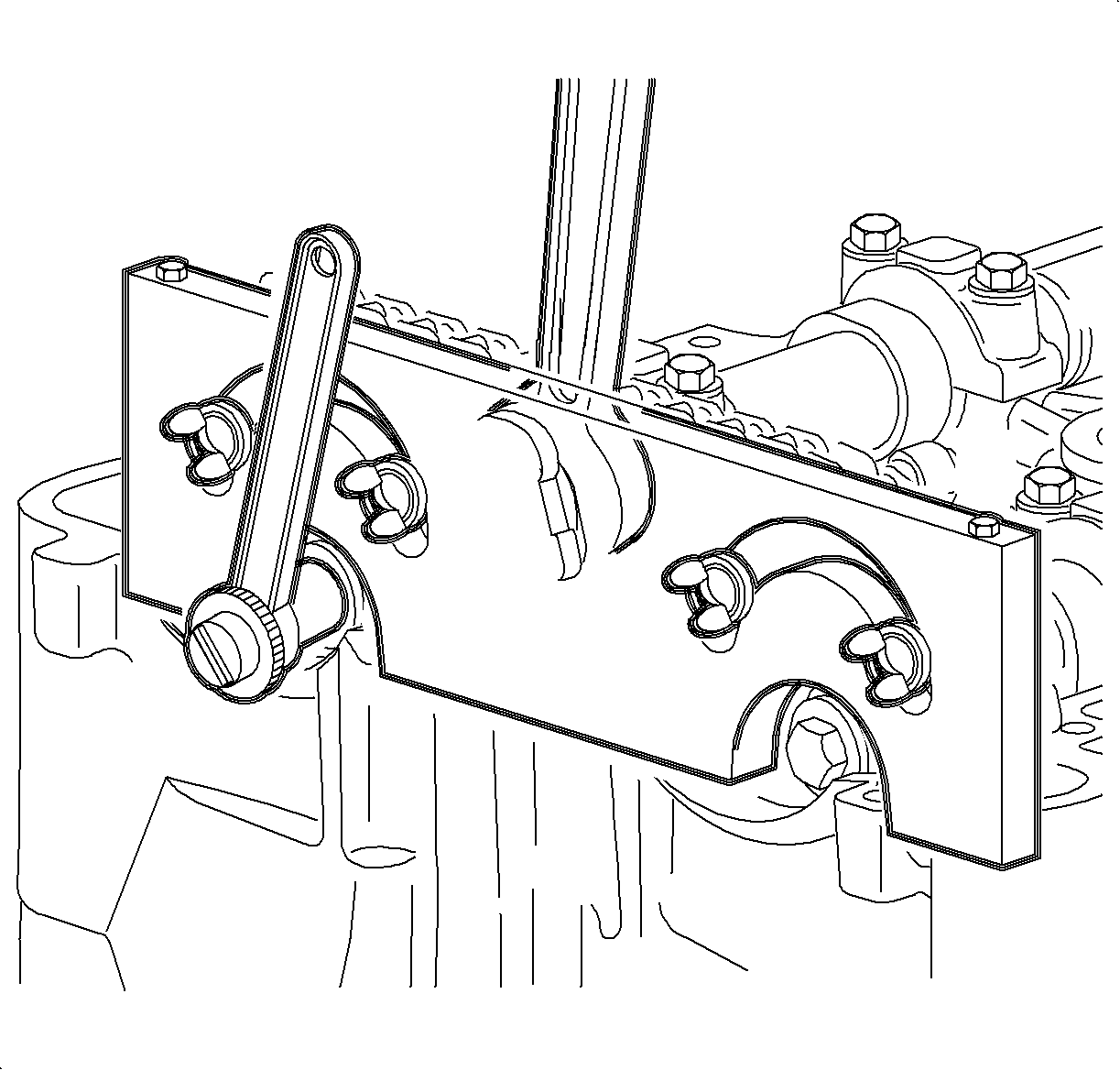
Important:
• When sliding the timing chain and sprocket onto the guide pins, be sure the timing chain is positioned properly on the adjustable and fixed guide or guide damage will occur. Care should be taken when removing the sprockets from the camshafts. • Camshafts are spring loaded and may rotate. Care should be taken until all spring tension is removed from the camshaft.
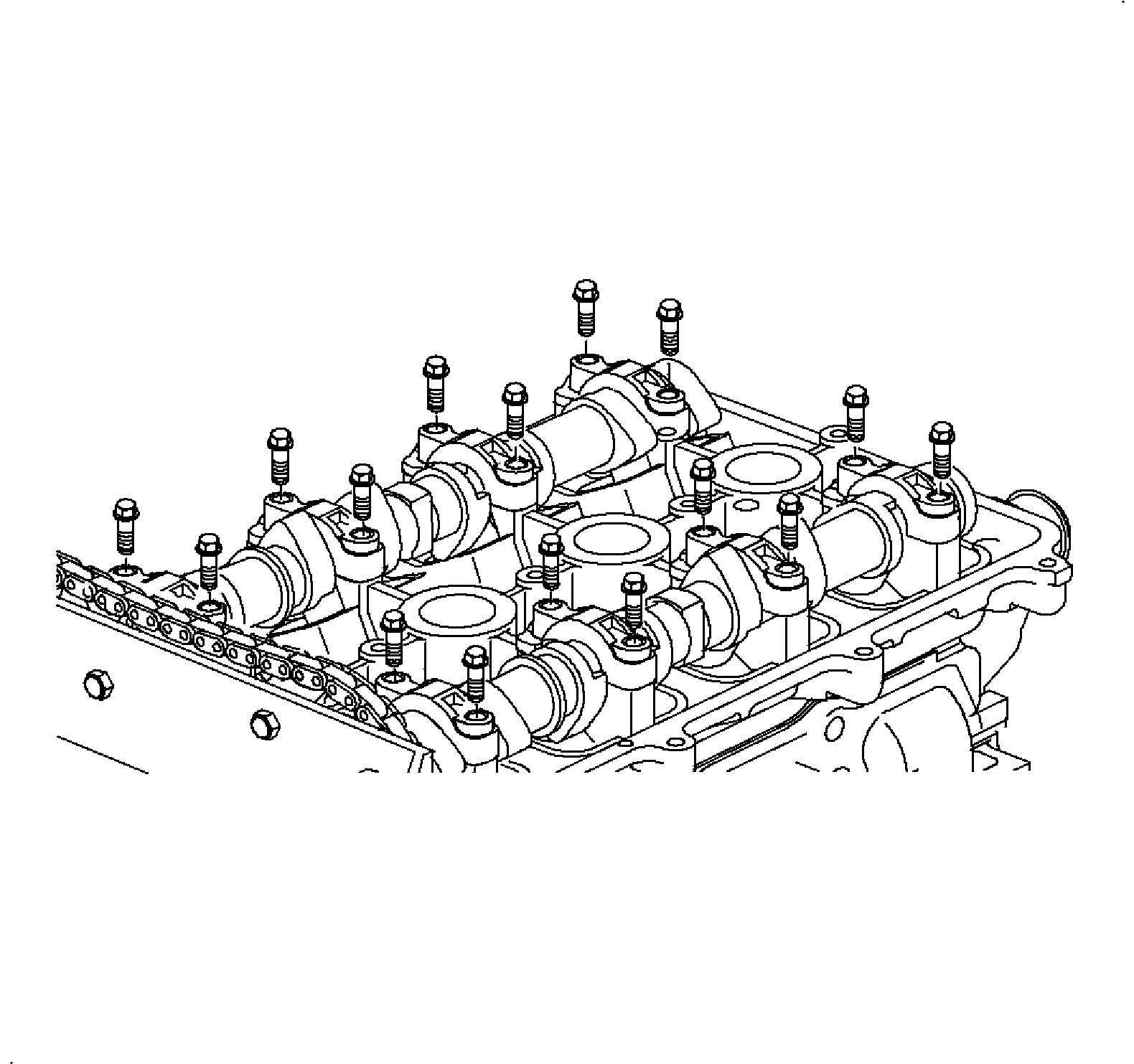
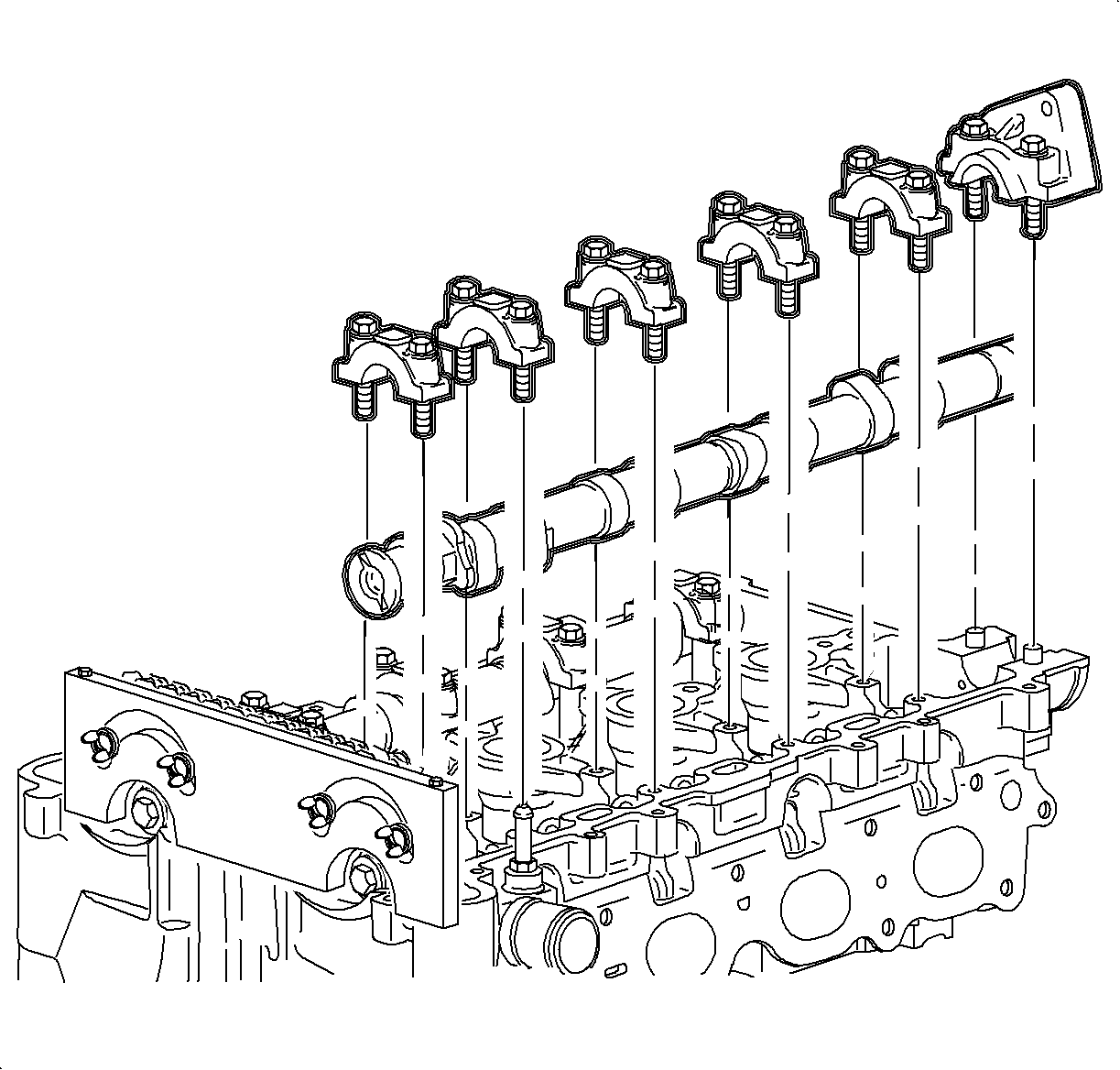
Installation Procedure
- Allow the engine to idle.
- Ensure install rocker arms are in their proper location, followers.
- Lubricate the camshaft bearing journals with clean engine oil and install both camshafts.
- When installing the camshafts, align to position camshaft slot in line with the notch on the sprockets.
- Install all bearing caps except the front caps and rear intake camshaft cap, if serviced. Tighten down the bearing caps uniformly.
- Verify camshaft timing.
- Slide the camshaft sprockets and timing chain on the guide pins toward the camshafts. Rotate the camshafts with a 24 mm open end wrench to properly align the camshaft and sprockets.
- Install new camshaft sprocket bolt and tighten. This will pull the camshaft sprockets into the cams. Hold the camshaft with the 24 mm open end wrench during tightening.
- Remove the J 43655 .
- Install the front camshaft caps.
- Install the upper timing chain guide and bolts.
- Install the rear intake camshaft bearing cap.
- Install the rear intake camshaft bearing cap.
- Install the power steering block-off plate.
- Visually inspect the camshaft cover gasket for signs of leakage. The camshaft cover gasket is reusable if not damaged.
- Assemble the camshaft cover and gasket. Use care to make sure the gasket is located in the retaining groove on the camshaft cover.
- Install the cover on the cylinder head and hand-tighten the bolts.
- Re-position the fuel line assembly.
- Install the transfer line fitting at the fuel-to-fuel rail.
- Connect the fuel rail bracket and bolt to the cylinder head.
- Connect the ground strap to the camshaft cover assembly.
- Connect the degas hose and clamp to the cylinder head.
- Connect the degas hose bracket and bolt to the cylinder head.
- Install the spark plugs.
- Install the ignition module assembly to cam cover and hand tighten the retaining bolts.
- Position the outlet resonator/duct assembly into position.
- Connect the PVC fresh air vent hose assembly.
- Tighten the clamp at the throttle body assembly.
- Position the outlet resonator/duct assembly up with the support bracket and install the push-pin.
- Tighten the clamp at the air cleaner assembly.
- Connect the IAT sensor connector.
- Connect the negative battery cable.
Notice: After cylinder block, head, or lifter replacement, it will be necessary to allow the engine to idle for 3-5 minutes. If the lifters are noisy, warm the engine up at less than 200 RPM. After the coolant temperature has reached approximately 85°C (185°F), cycle the engine RPM from idle to 300 RPM for approximately 10 minutes or drive the vehicle 8 kilometers (5 miles) to purge the air. If the air cannot be purged, the faulty lifters will have to be replaced.
Notice: Lifters that are pumped up may cause PCM misfire codes to set. Continue to operate the engine until the lifters bleed down. Using the scan tool, clear the codes and malfunction history.
Notice: If a valve seal is removed after it has been installed, it must be discarded. The valve stem lock groove will cut the seal's lip during removal. Use extreme care when installing valve retainers and do not damage the valve stems.
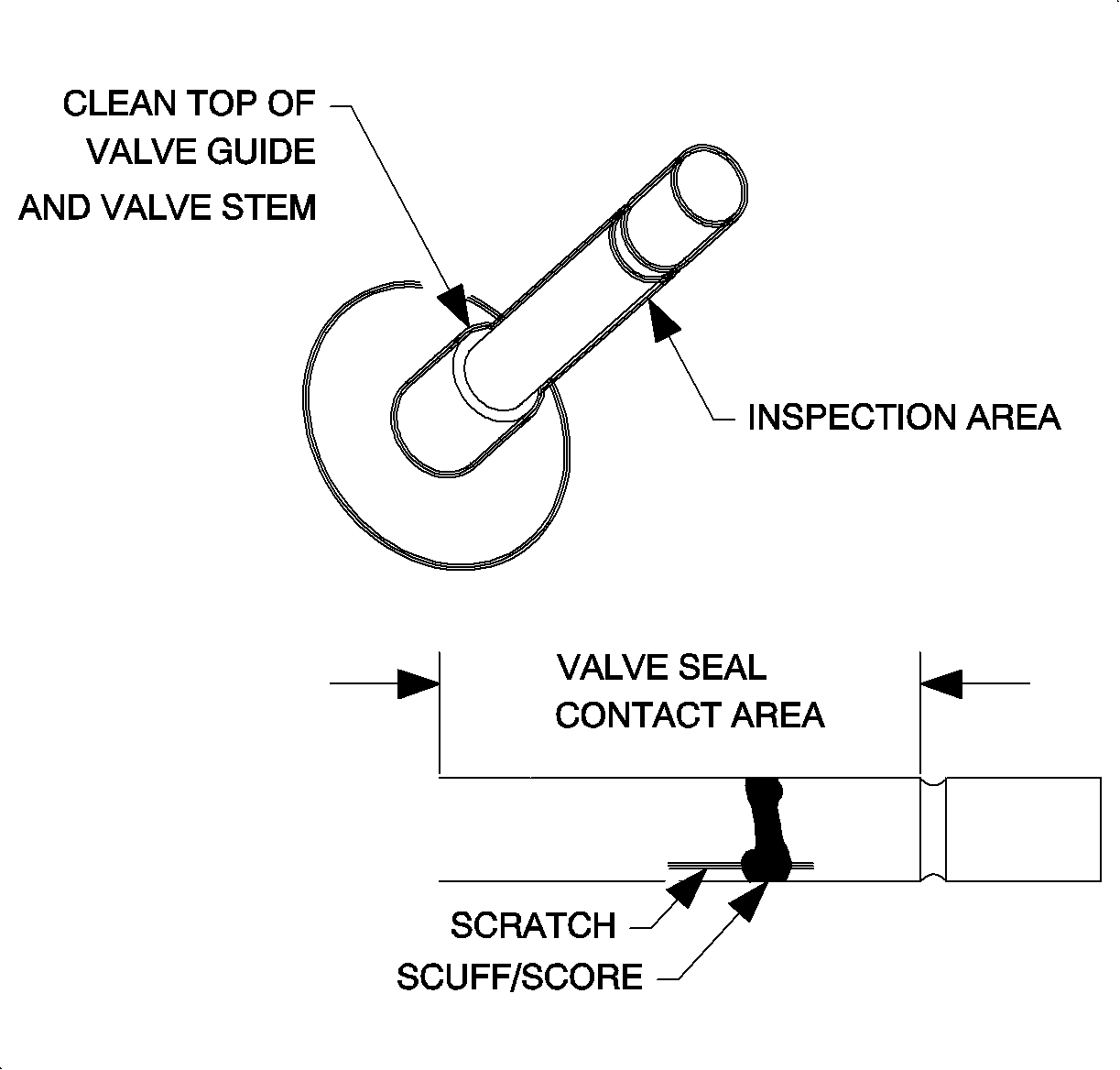
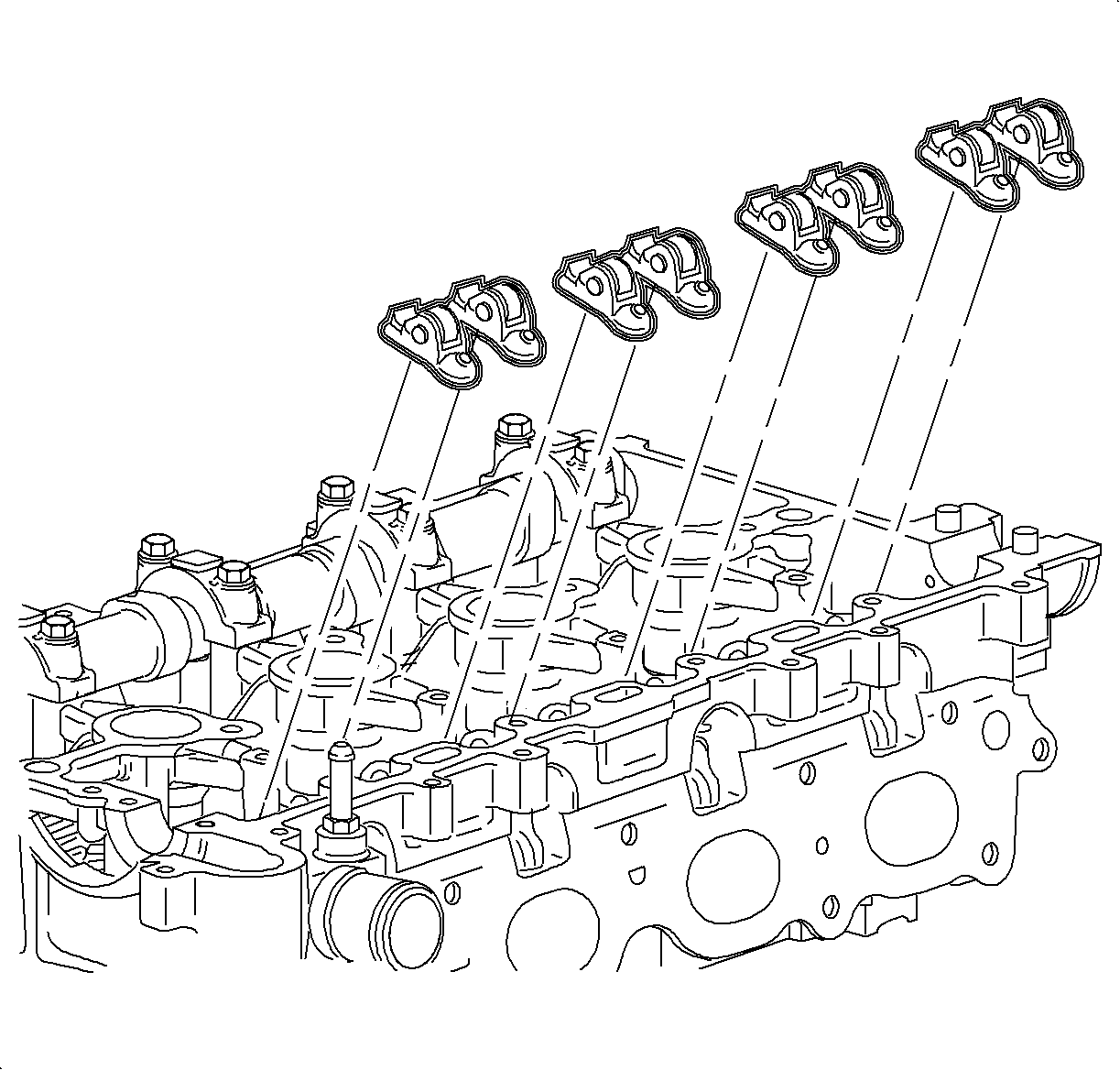
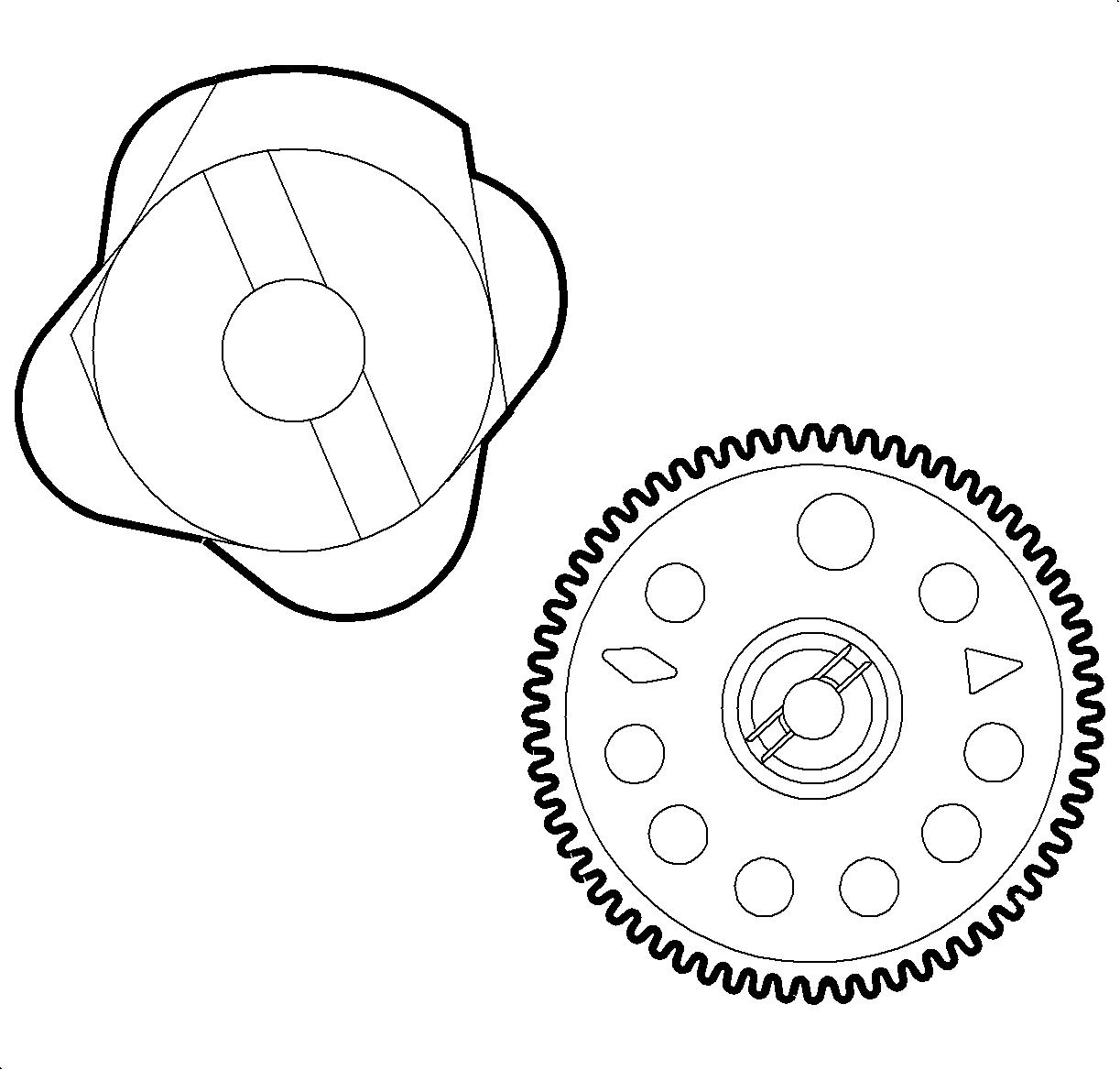

Tighten
Tighten the camshaft cap bolts to 10 N·m (89 lb in).
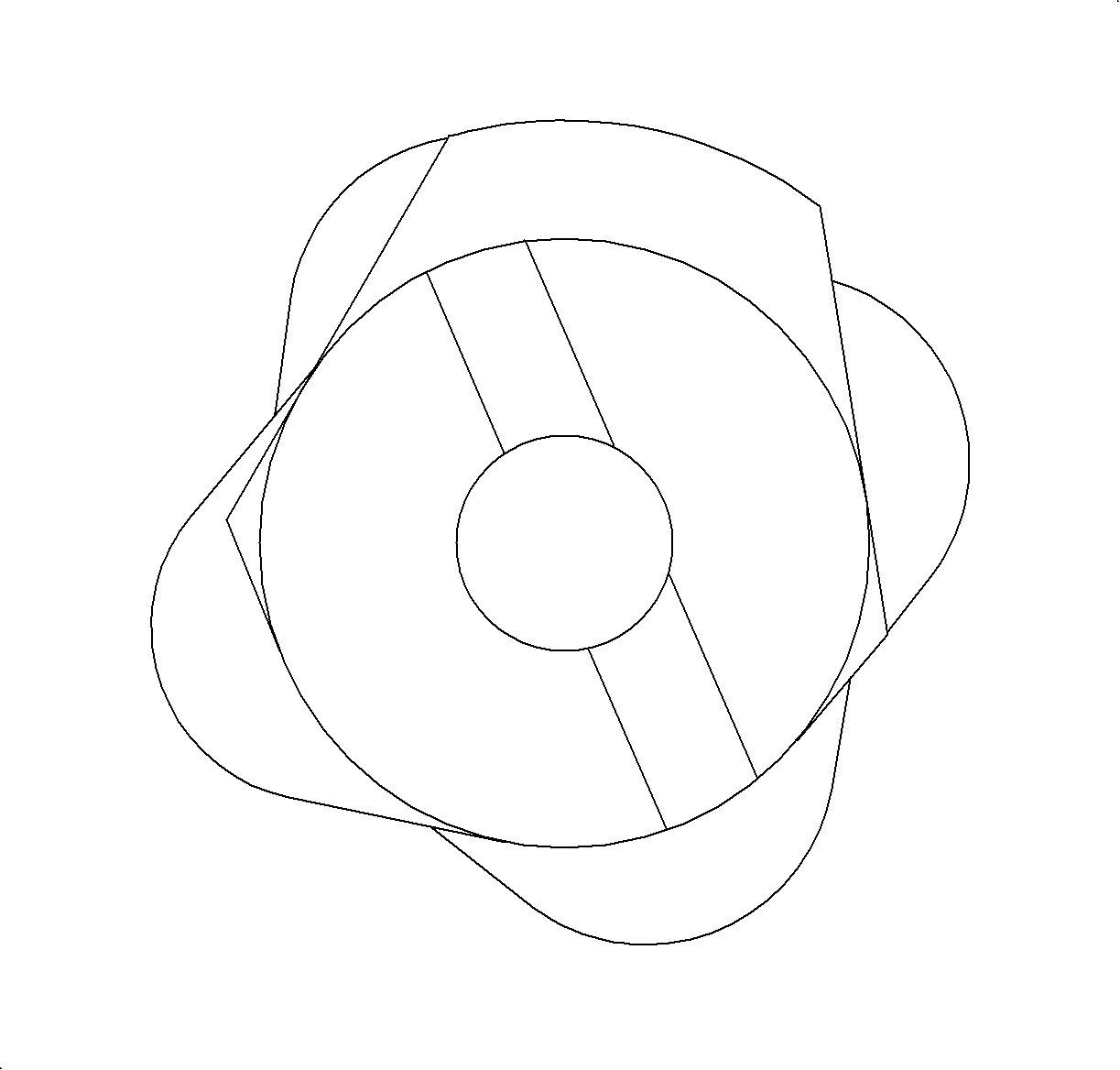
Important:
• Ensure that the alignment slots are correctly aligned with the notches in the camshaft sprockets before final tightening is applied. • Verify the timing chain is properly positioned on the fixed guide or guide damage will occur. • Verify the camshafts are properly timed as outlined in this section prior to starting the engine.
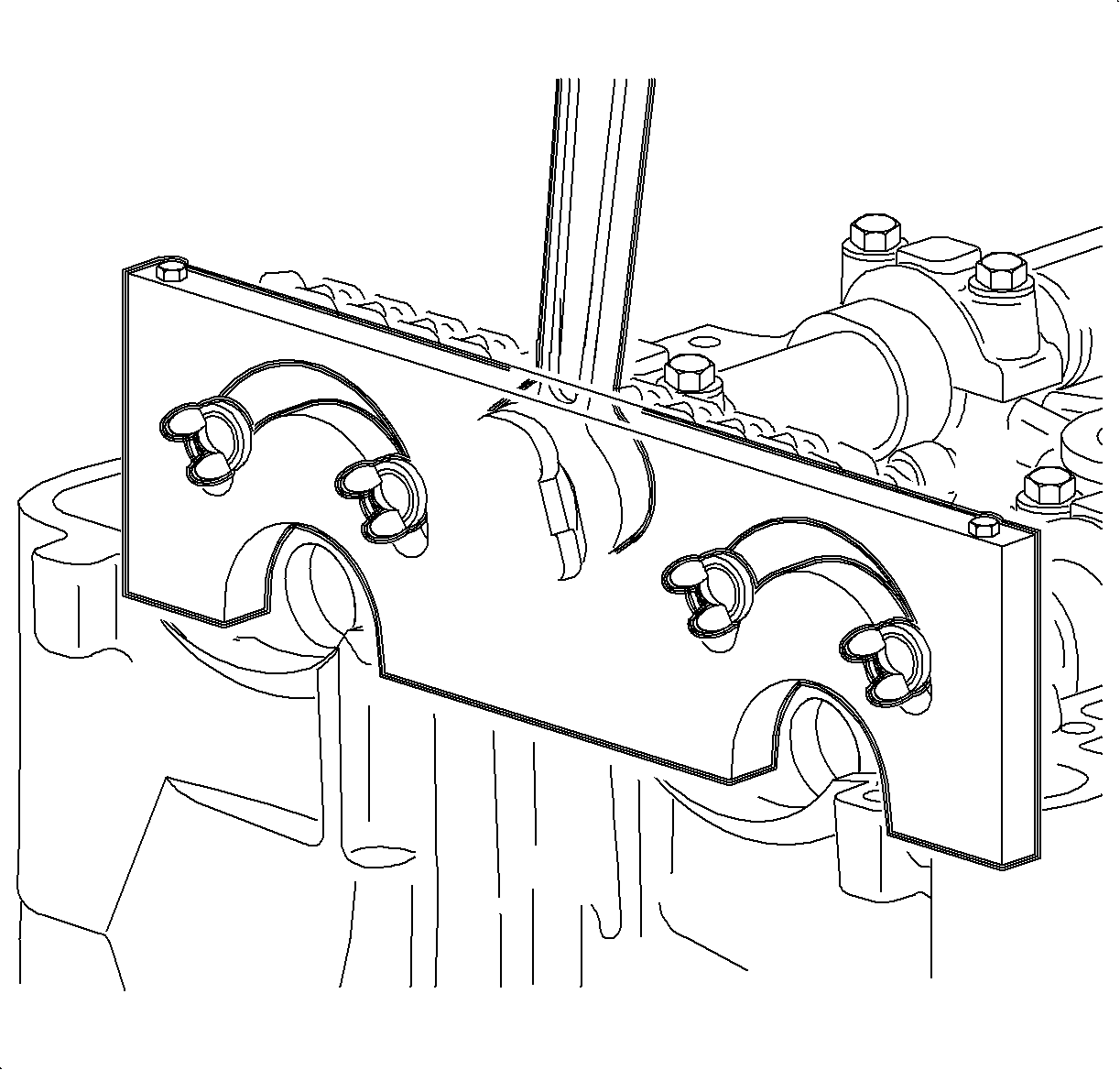
Tighten
Tighten the camshaft sprocket bolts to 85 N·m (63 lb ft) +30 degrees.
Tighten
Tighten the camshaft bearing cap bolts to 10 N·m (89 lb in).
Important: Apply Permatex® Threadlocker Blue to the upper timing chain guide bolts. Refer to Adhesives, Fluids, Lubricants, and Sealers for the correct part number.

Tighten
Tighten the timing chain guide upper bolts to 10 N·m (89 lb in).
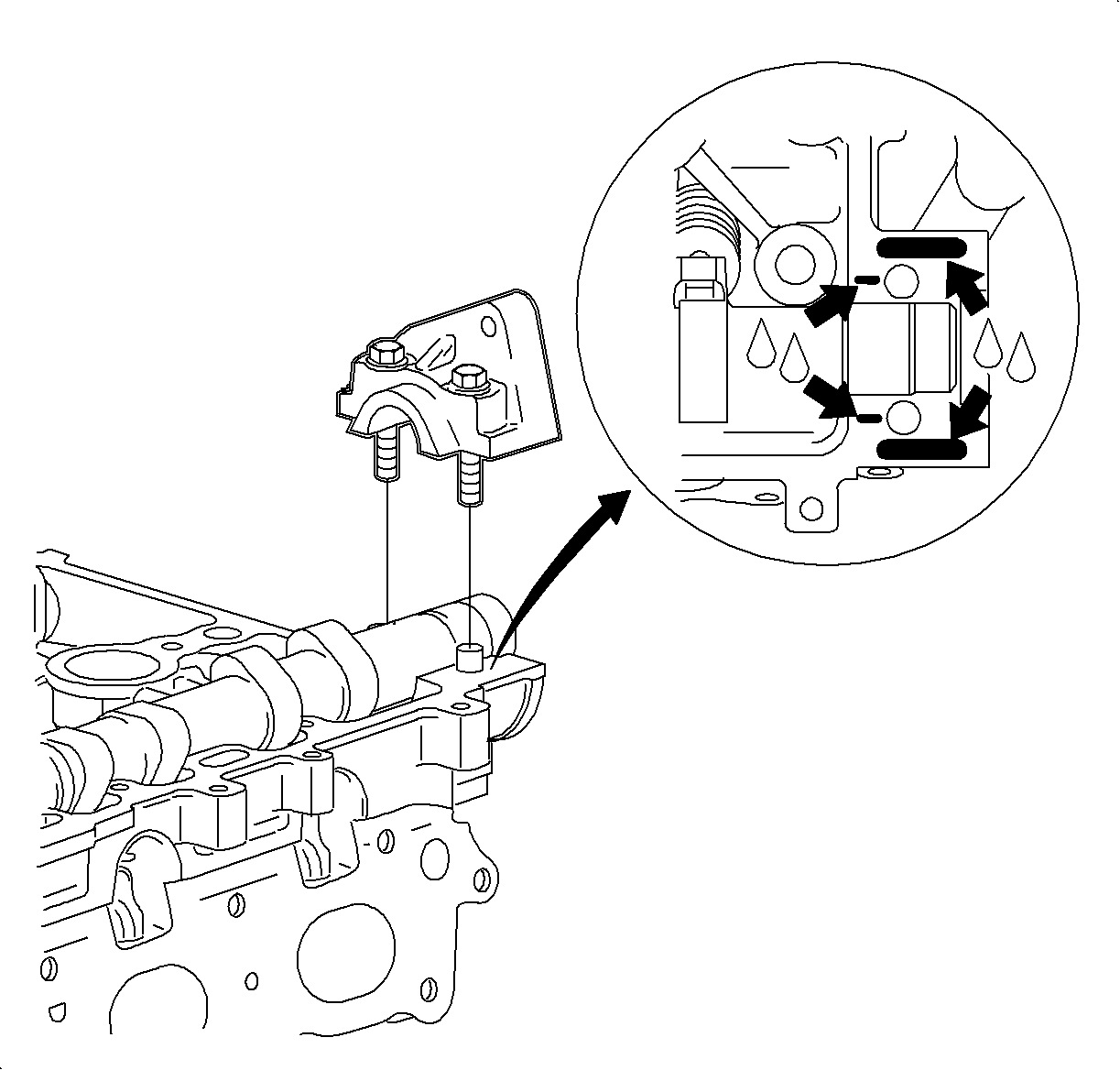
Important: Apply sealant GM P/N 12378521 (Canadian P/N 88901148) to the cylinder head near the rear intake cap as shown.
Tighten
Tighten the intake camshaft rear cap to 25 N·m (18 lb ft).
Tighten
Tighten the power steering block-off plate to 25 N·m (18 lb ft).

Tighten
Tighten the camshaft cover bolts to 10 N·m (89 lb in).

Notice: An open-end wrench must be used to support the fuel line to rail connection during loosening/tightening to avoid damaging the fuel rail assembly.
Tighten
Tighten the transfer line fitting-to-fuel rail to 10 N·m (89 lb in).
Tighten
Tighten the fuel line transfer bolt to 10 N·m (89 lb in).

Tighten
Tighten the camshaft cover ground strap bolts to 10 N·m (89 lb in).
Tighten
Tighten the coolant pipe bracket bolt to 10 N·m (89 lb in).
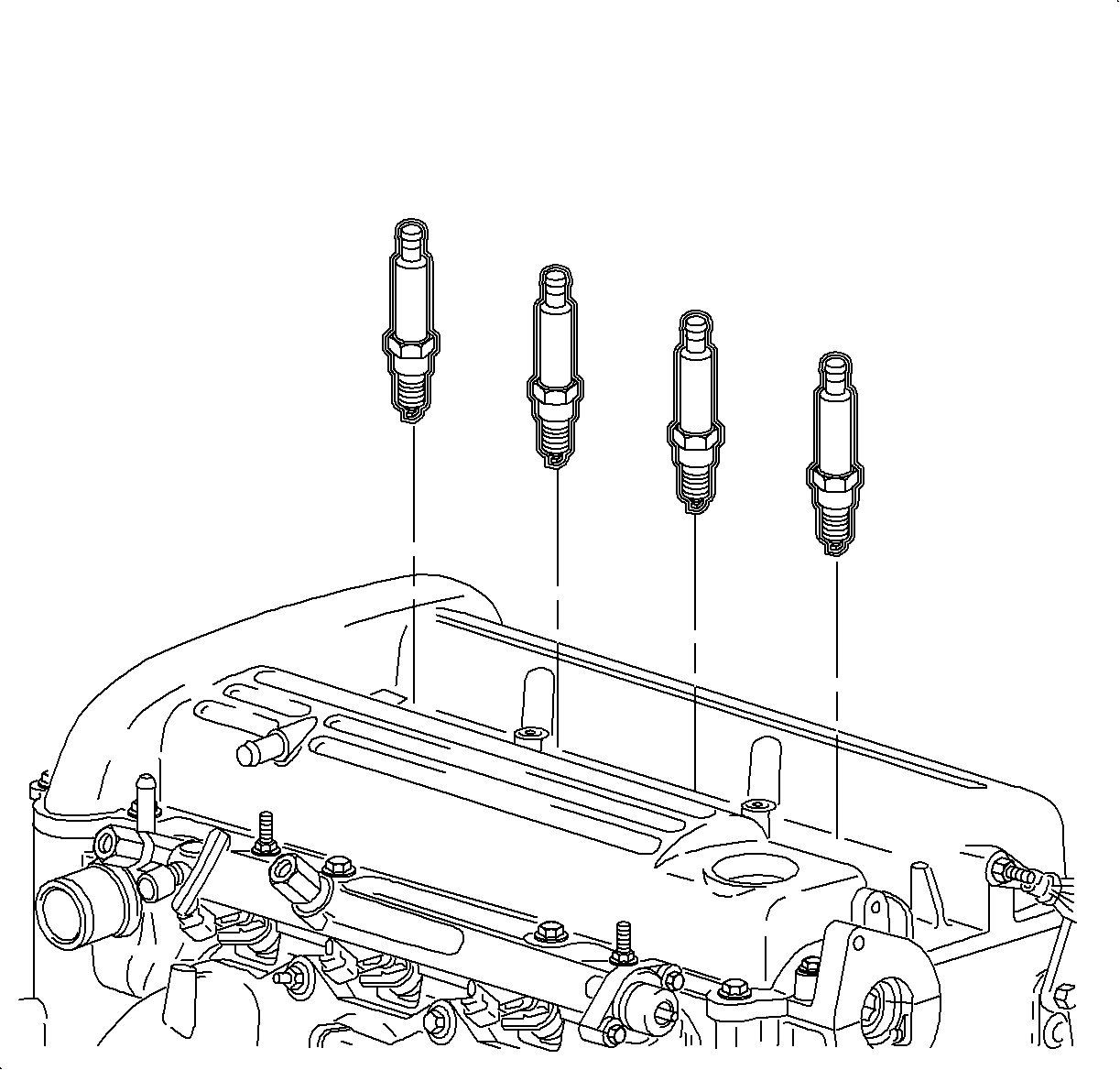
Tighten
Tighten the spark plugs to 20 N·m (15 lb ft).
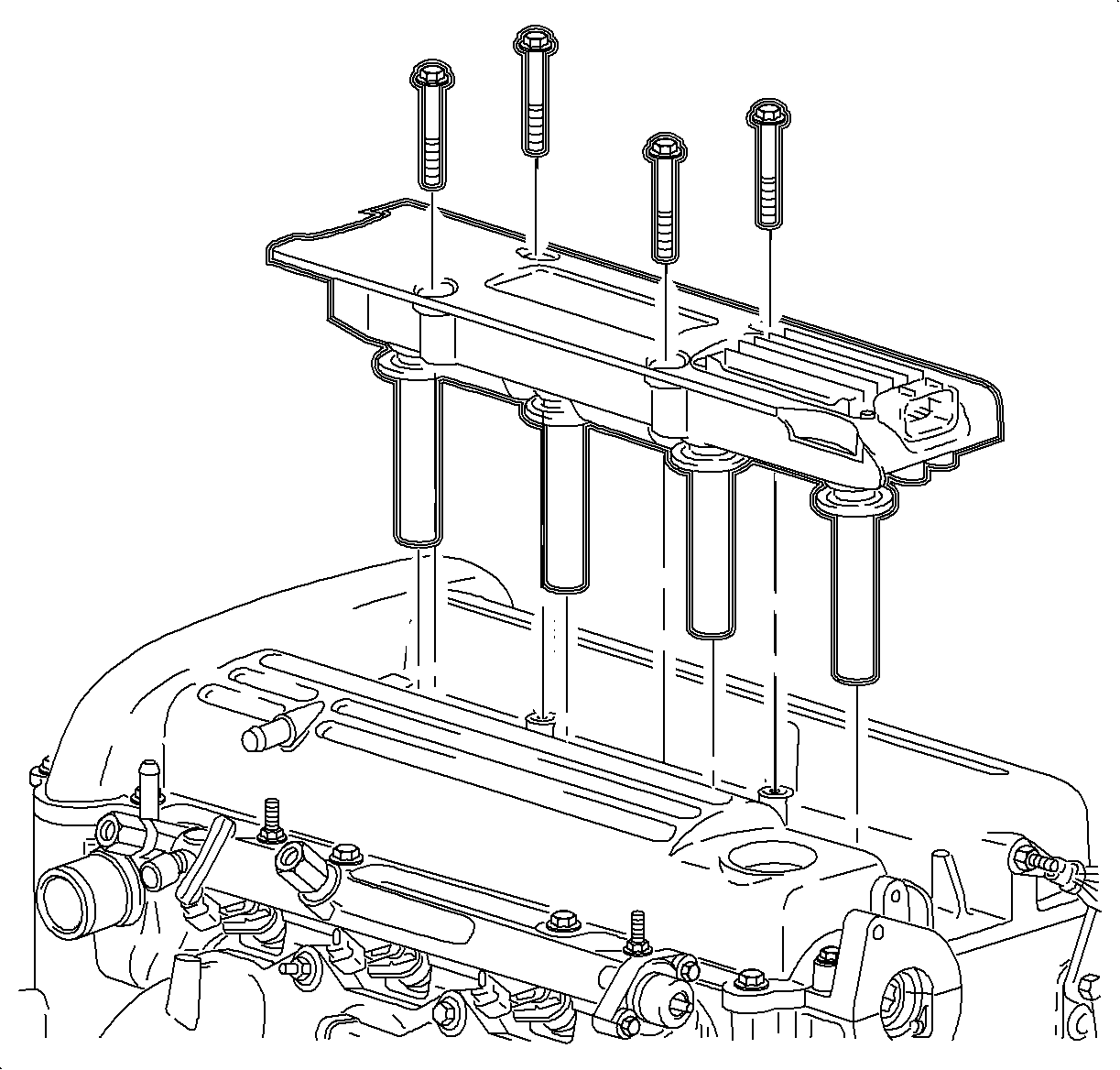
Tighten
Tighten the ignition module-to-camshaft cover bolts to 8 N·m (71 lb in).
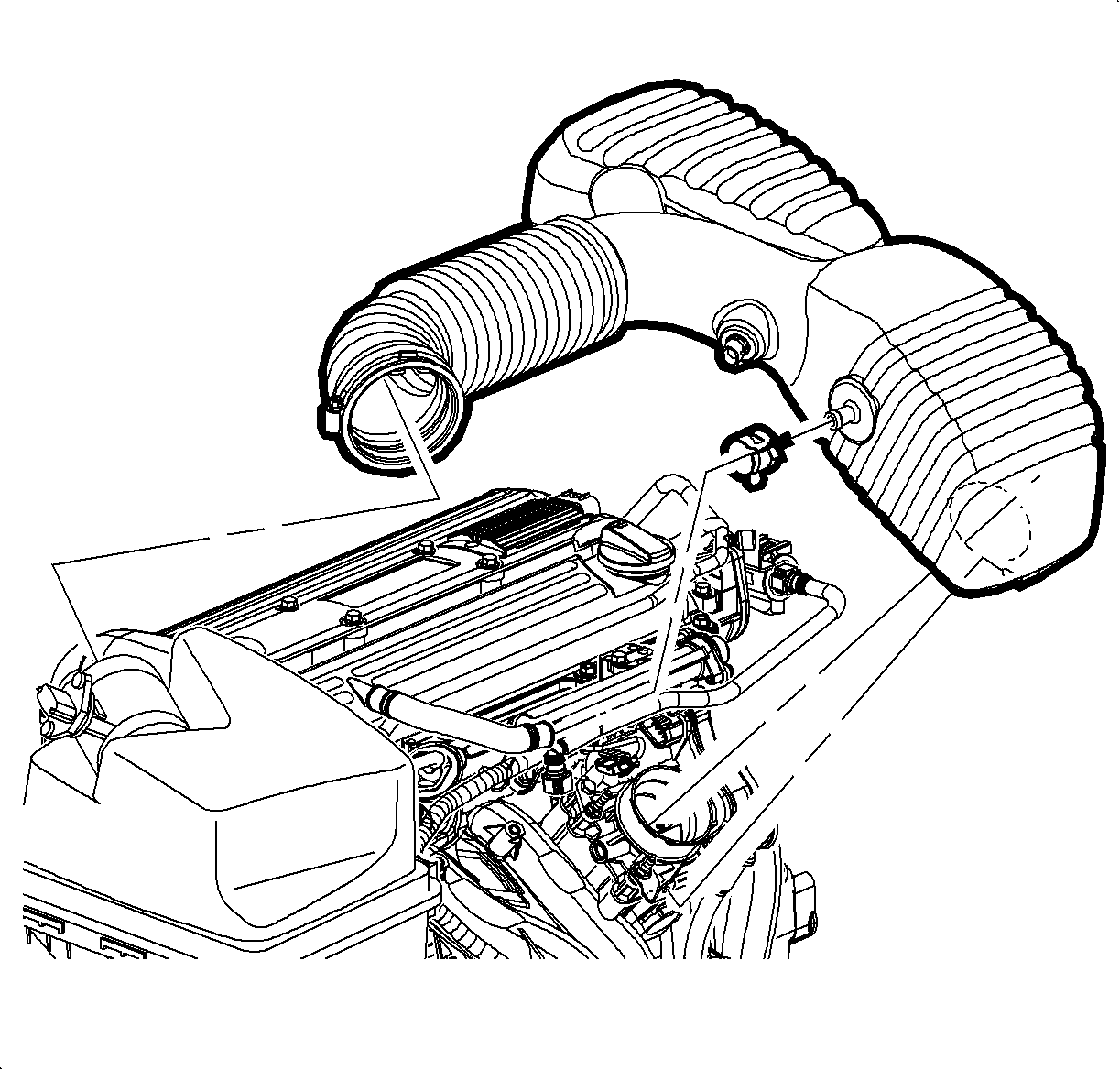
Tighten
Tighten the battery terminal bolt to 17 N·m (13 lb ft).
